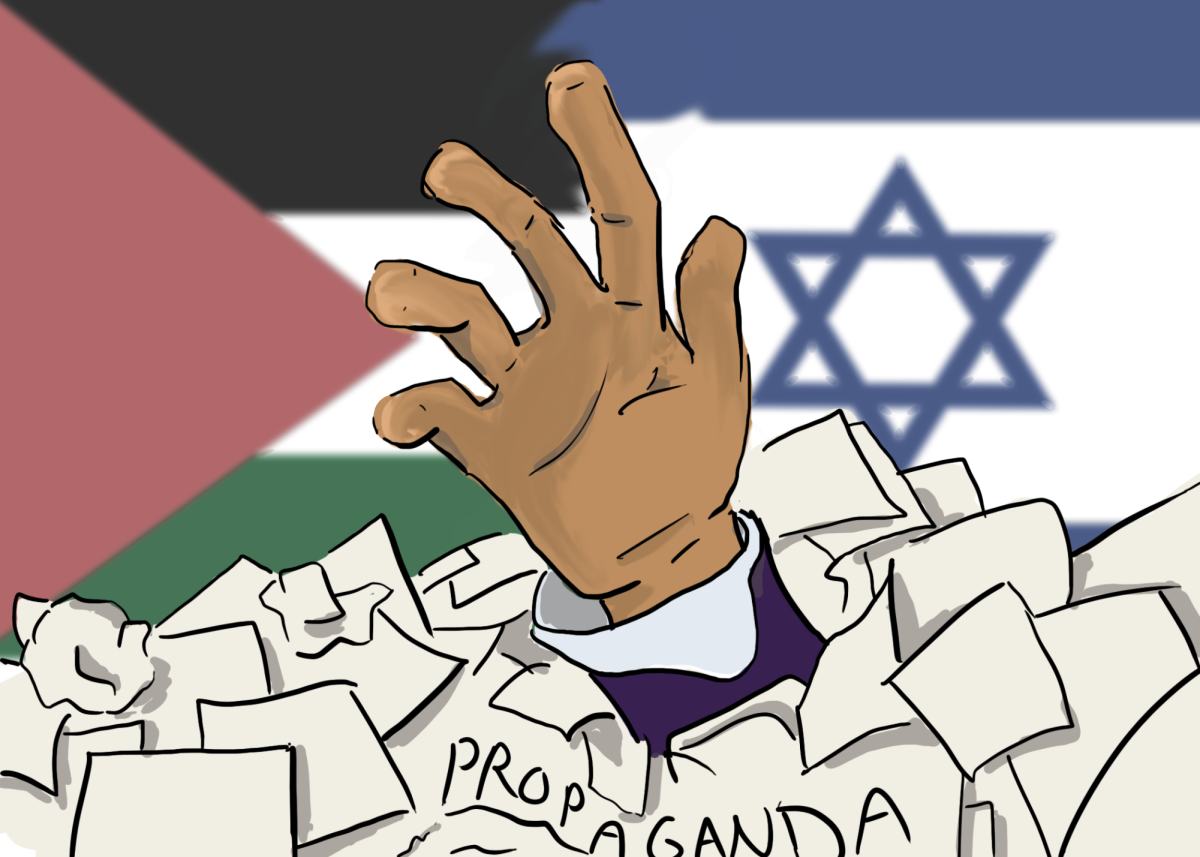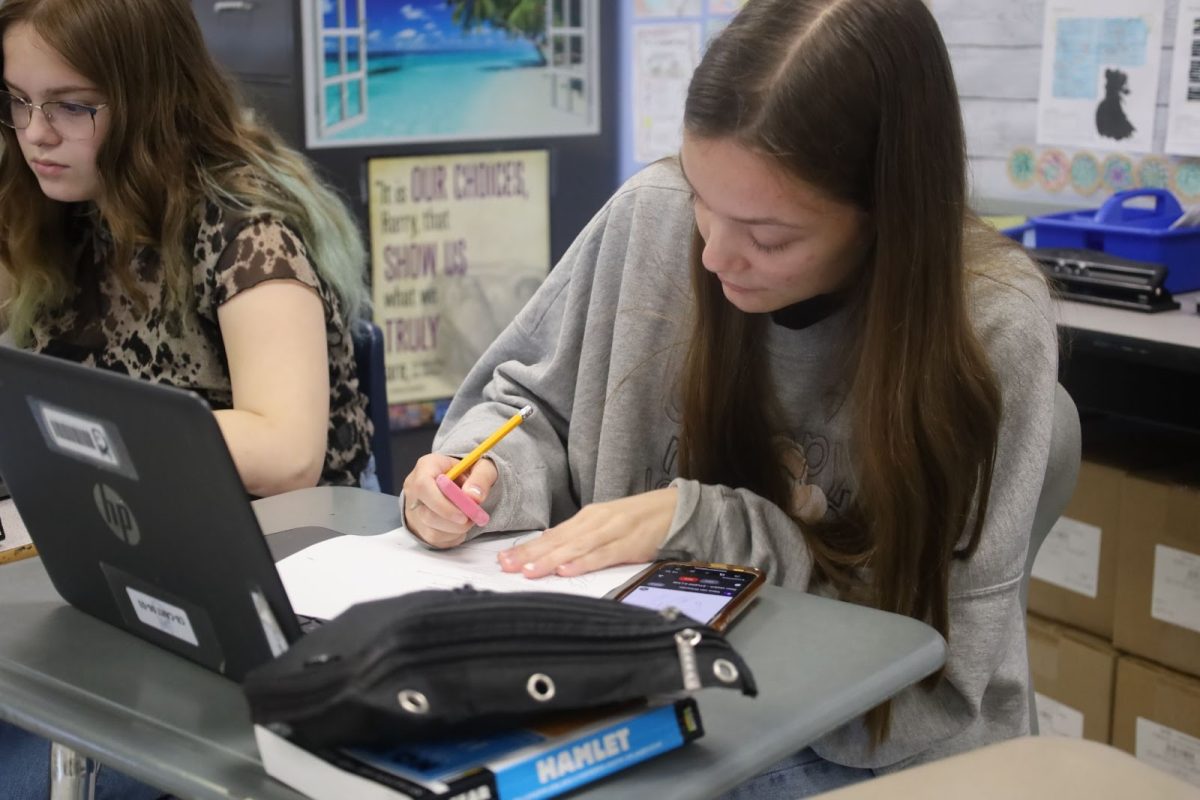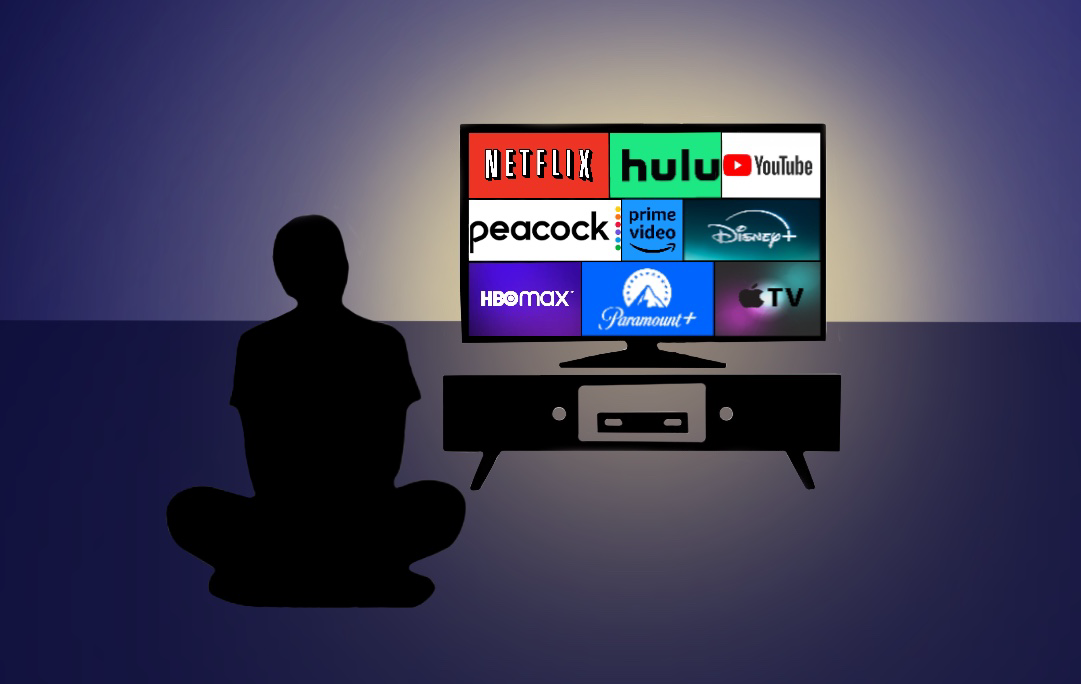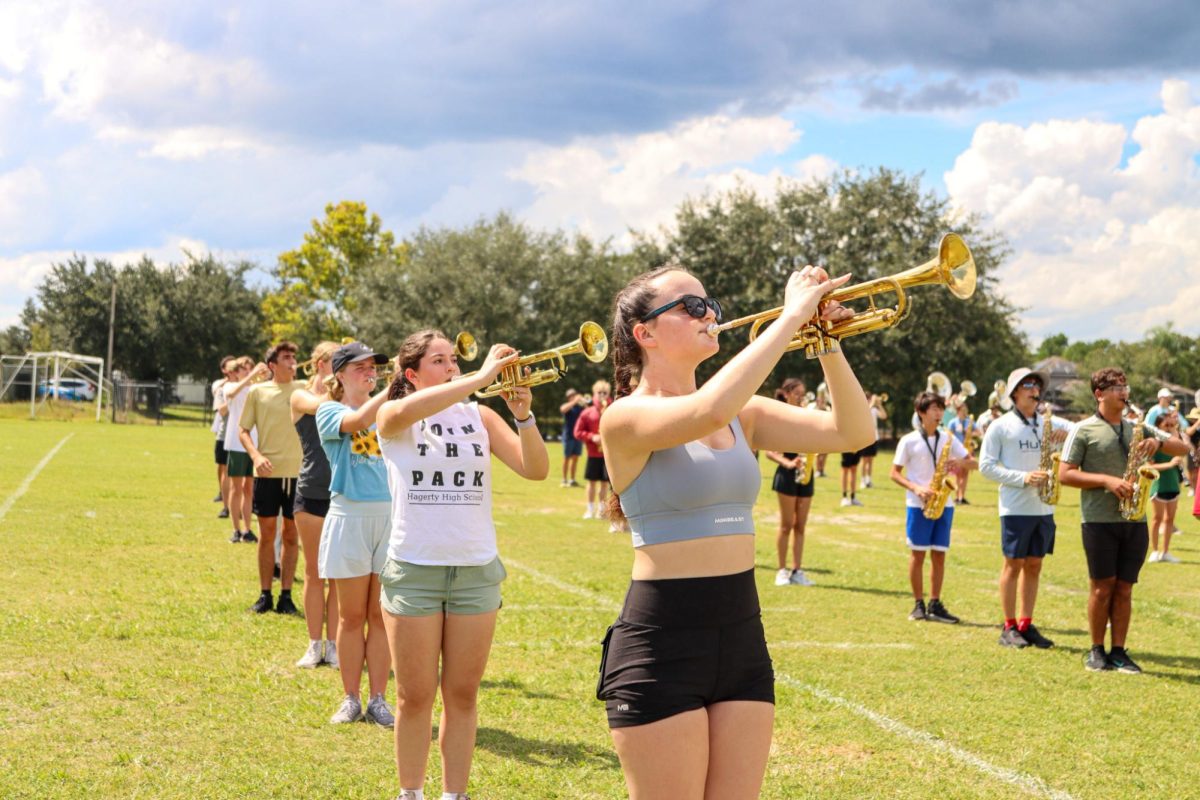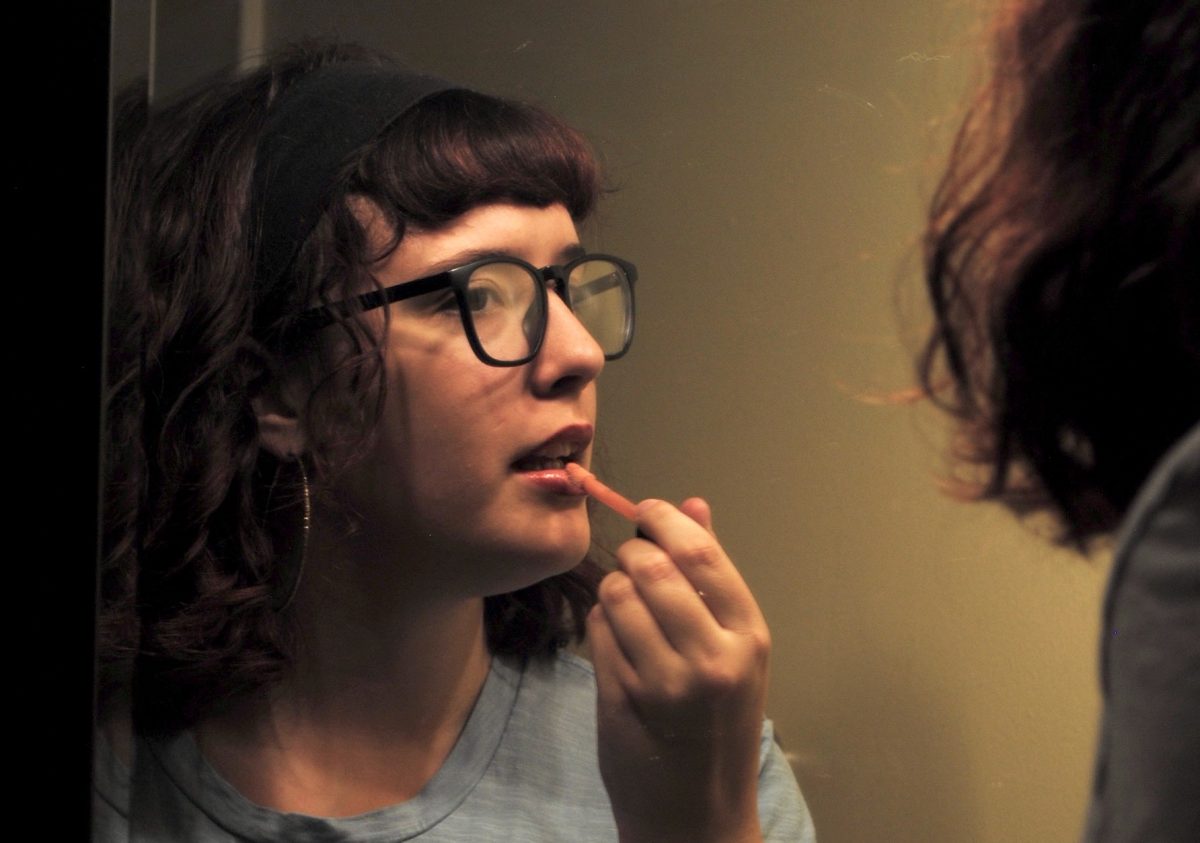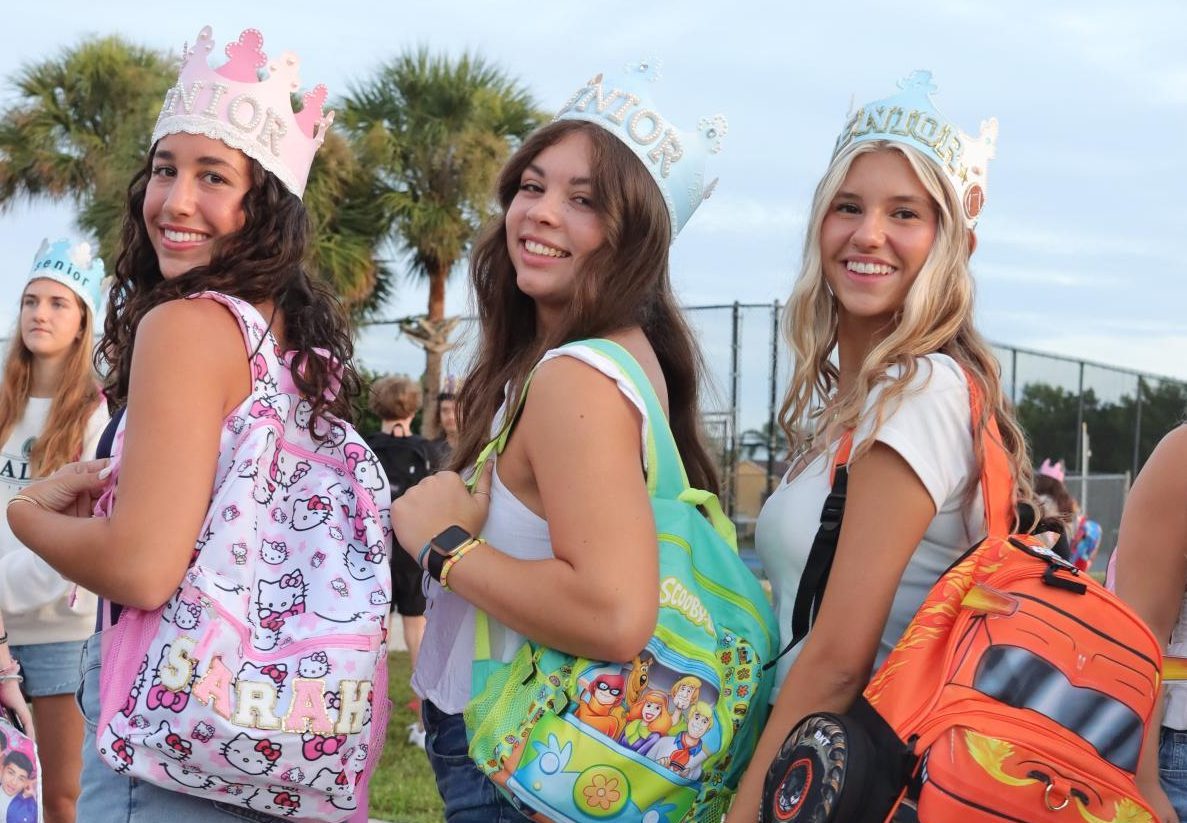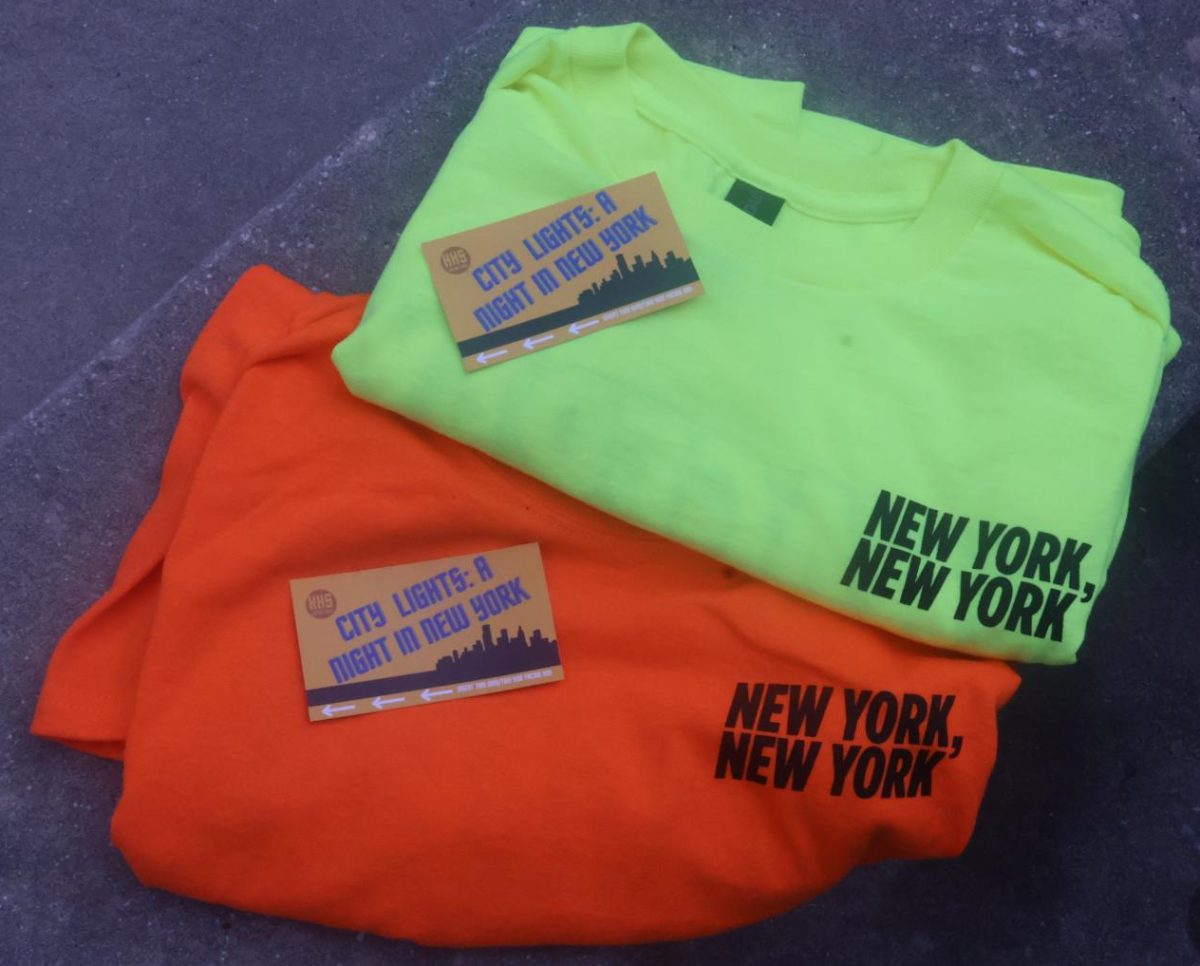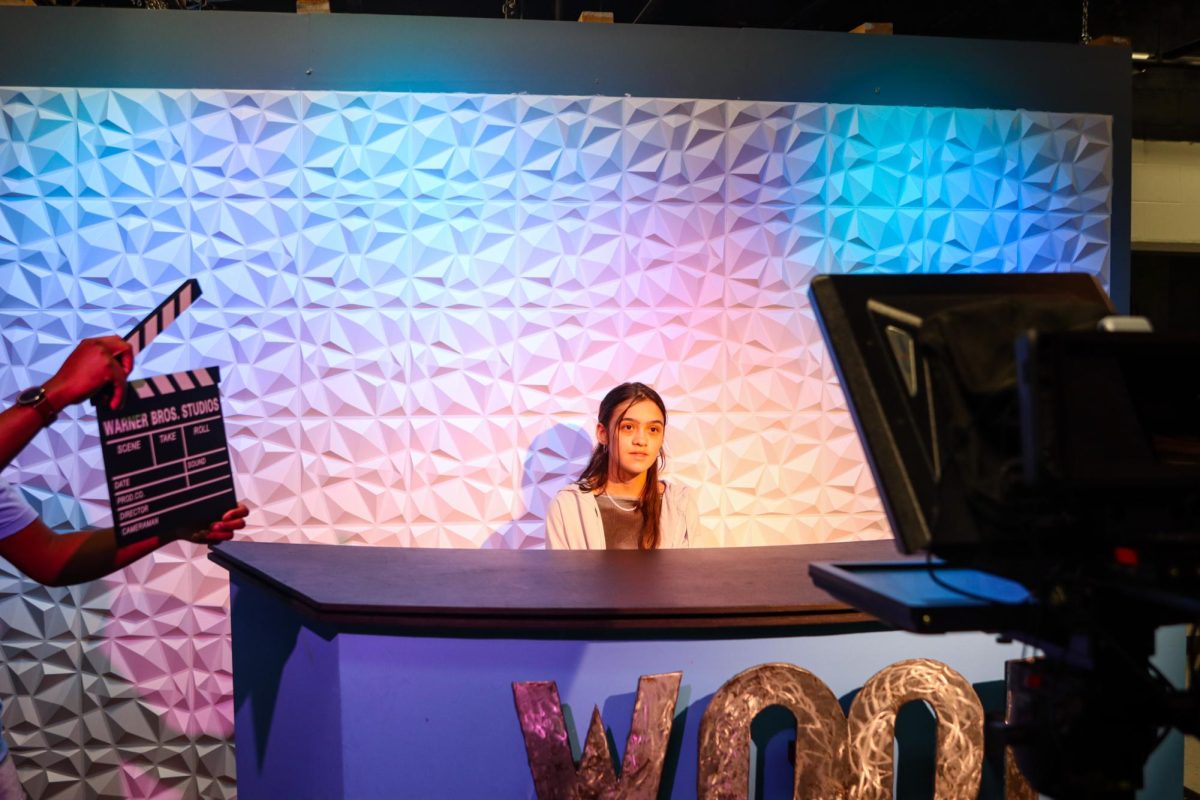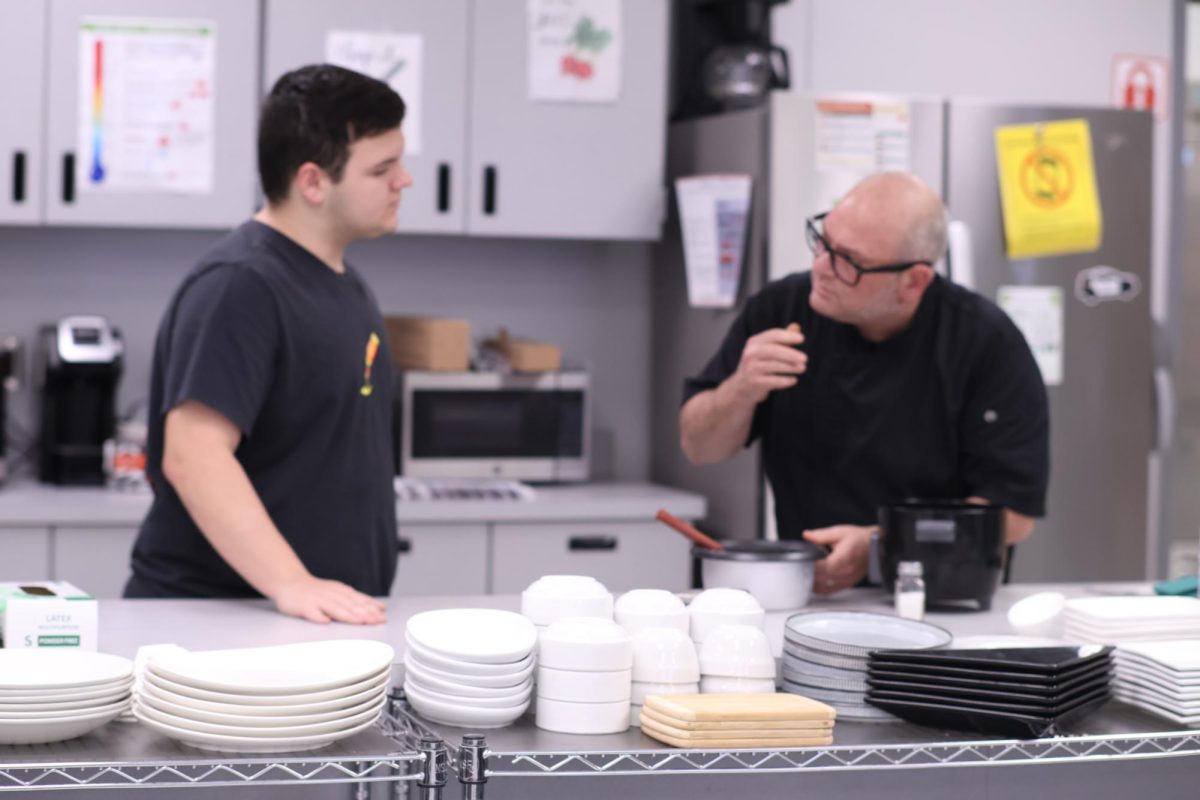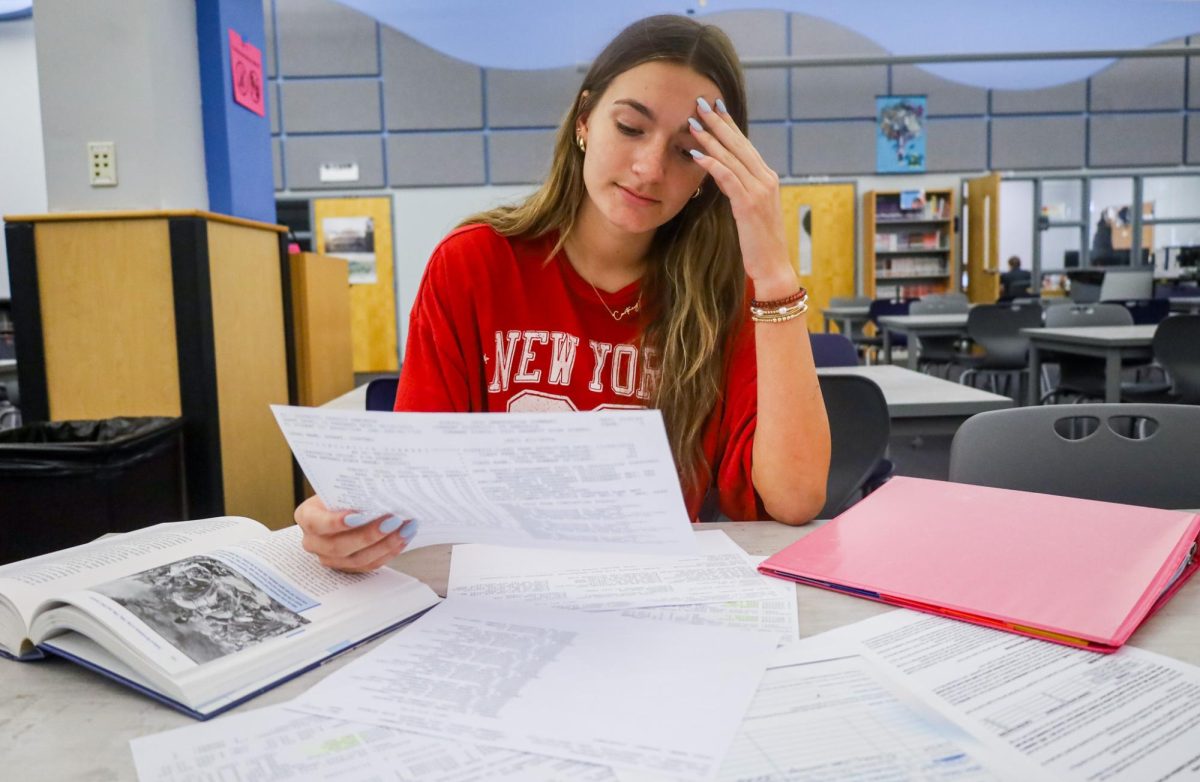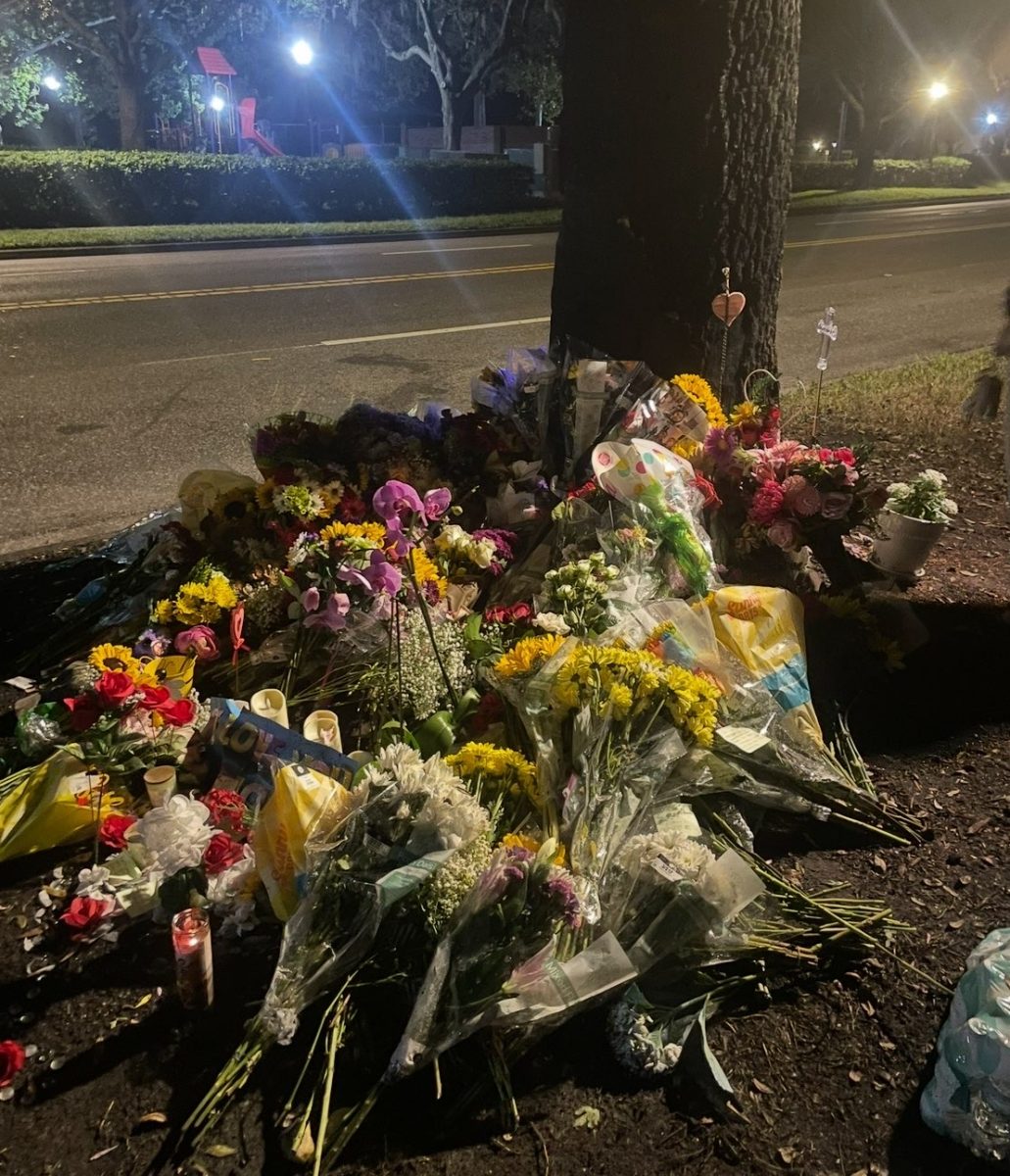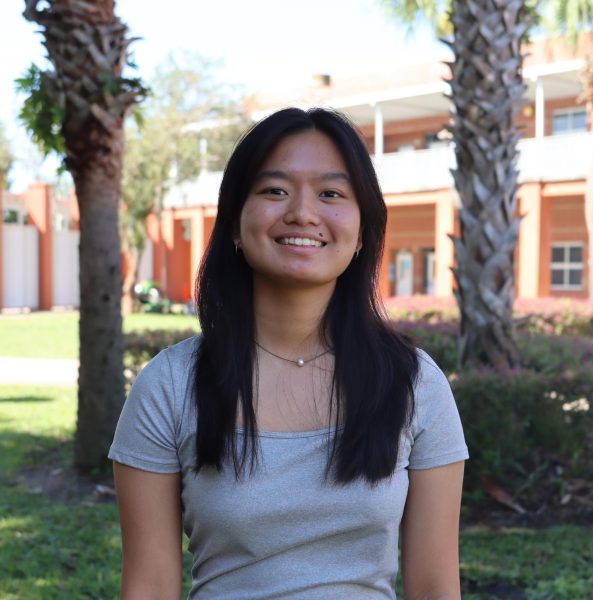Americans remember Sept. 11, 2001 as a day of smoke, sirens, and fear.
For Middle Easterners, Oct. 7, 2023 now holds the same place in their memory.
At 6:30 a.m. Hamas, an Islamic militant group currently in control of the Gaza Strip, carried out a surprise attack on Israel, killing more than 1000 people and breaking an already-fragile ceasefire between Israel and Palestine. Immediately after, the Israeli government launched airstrikes on Gaza, hoping to flush out Hamas members hiding within the civilian population. These scare tactics led to more than 8000 reported deaths, many of them children.
In the past few weeks, Americans’ eyes have been glued to their screens, focused on a region more than 6000 miles away.
For senior Danielle Kaminsky, though, the attack hit close to home. Her family is from Israel and lives near the site of the music festival where Hamas initially attacked.
“I started texting my family on WhatsApp in Israel, and they said, ‘Yeah, we’re getting attacked right now,’” Kaminsky said. “It was really scary. My mom was crying and my dad was freaking out.”
For outsiders looking in, the brutality of current attacks was easy to imagine as an influx of bloody pictures and videos flooded media sites.
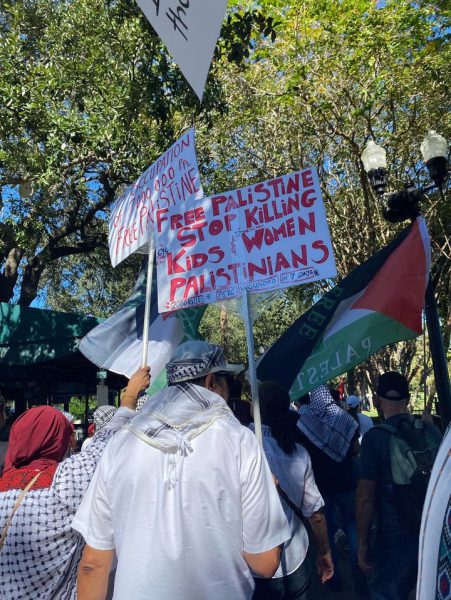
The constant media attention brought support flooding for Israel, as well as backlash against Palestine. Many have even taken their outrage at Hamas and broadened it to include all Muslims and Middle Easterners.
Senior Doaa Desooki has experienced these effects firsthand. As an Arab Muslim, she has noticed the uptick in aggressive remarks and comments online. Some have even gone so far as to message Hagerty’s Muslim Student Association page.
“It’s just disappointing to see that this is the youth of America and this is the country that we’re going towards,” Desooki said. “America has always preached that we’re free and a democracy, but we’re not. There’s censorship and dehumanization [in the media]…it’s hypocritical.”
People were especially upset when Eye on Palestine, a pro-Palestinian social media account with millions of followers, was banned on multiple platforms. Although Meta released a statement clarifying the ban was due to potential security issues and had been resolved, many saw the account’s removal as the tech giant taking a side. The ban was just one of many examples that showed how quickly the masses rush to judgment when millions of online users were involved. Both sides have struggled with these inflated stories and the quick judgements people make based on it.
“If you’re misinformed and you start talking about it, other people will be misinformed and it will just kind of pile up and create this really anti-whoever-you’re-biased-against,” junior Hannah Rugar said. “The situation is just not good.”
Jane*, a senior, shared similar worries about the misinformation on social media.
“People just see that I’m Muslim, and they automatically assume that I’m a Palestinian, that I support Hamas, that I’m a terrorist,” Jane said. “I feel underrepresented…[it’s like] we don’t have a voice and it’s being silenced.”
A few weeks after Israel’s declaration of war, Desooki, along with senior Zahra Ateeq, took the initiative to make their voice heard and joined a pro-Palestine rally in Orlando. As with any highly controversial topic, these protests have faced widespread backlash.
Not even counter protestors, however, can deter Desooki from exercising her First Amendment rights.
“[The protests] are very peaceful and uplifting. It wasn’t violent—people were just walking peacefully with signs; there were children and elderly there,” Desooki said. “As future constituents, we just want to raise awareness and call on our representatives to call for a ceasefire and adhere to their words.”
With their families living in such close proximity to the battle zones, both Kaminsky and Rugar also felt compelled to make a difference. Tzofim, their Israeli scouts group, organized a drive to donate supplies to Israeli soldiers. Since the organization’s headquarters is far from Oviedo, they put up fliers around school to promote donations and support.
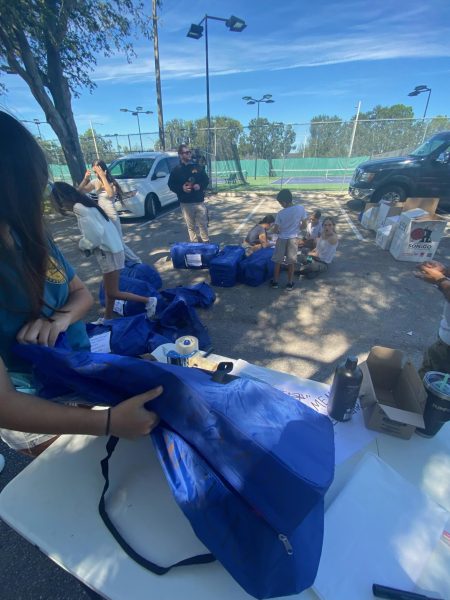
“My family [and everyone there] had to stop their lives and put it on hold to try and just keep themselves safe,” Kaminsky said. “We’re trying to bring [the drive] closer to Hagerty so people actually care.”
Although the Israel-Palestine conflict has only recently made the top of headlines, the problem has been ruminating for decades. Since Israel’s creation in 1948, the two sides have experienced a constant push and pull as both try to establish territorial and religious dominance. Devastation from multiple wars displaced hundreds of thousands of civilians. As a nation without official borders, Palestinians were and still are especially vulnerable.
Ateeq grew up hearing about Israel-Palestine tensions from her sisters and friends. The older she has become, the more passionate she has become.
“I have had friends who were Palestinian who had to flee, and friends who have had multiple family and friends die or face oppression,” Ateeq said. “I have taken it upon myself to learn and be aware of the oppression they have been facing for decades, and to speak up about it, especially now, when it is so mainstream.”
Despite the two extremes the media often portrays, Desooki tries to find a middle ground. The Israeli government’s actions upset her, but she recognizes the distinction between the government and its people.
“I don’t necessarily have any [bad] perception of the people. There’s good and bad people on both sides, anywhere you go,” Desooki said. “So I’m not going to collectively assume that everyone there hates us and wants everyone to die in Gaza. I’m not saying kick out the [Israelis] from all of the land, I’m saying live equally.”
Kaminsky echoes similar sentiments and hopes to see a permanent end to the violence.
“War is war. It’s harmful for everyone…there’s no good aspects,” Kaminsky said. “I hope that there can be some sort of compromise, and everyone finds peace some way or another.”
*names changed for privacy

